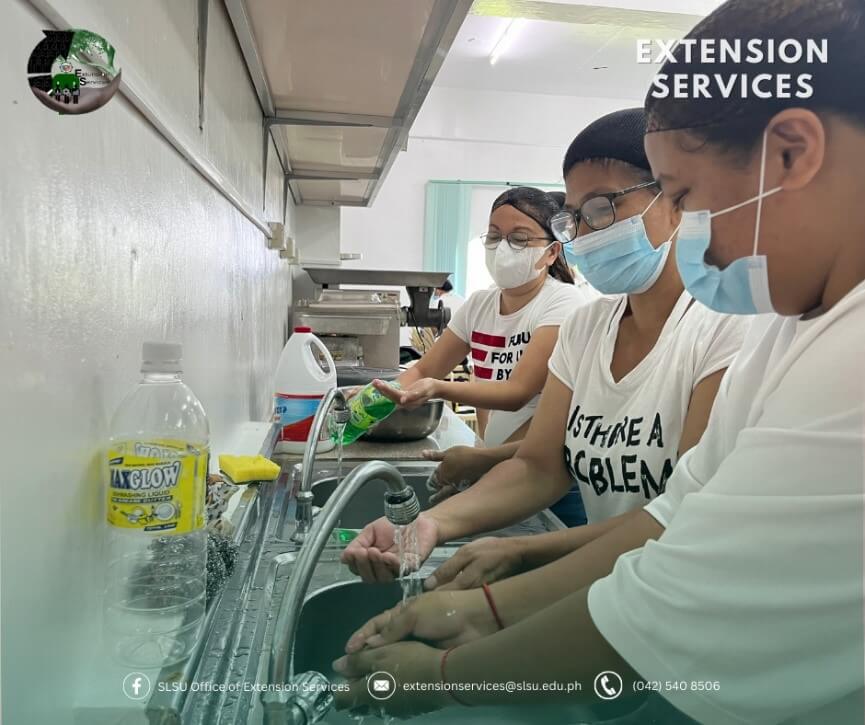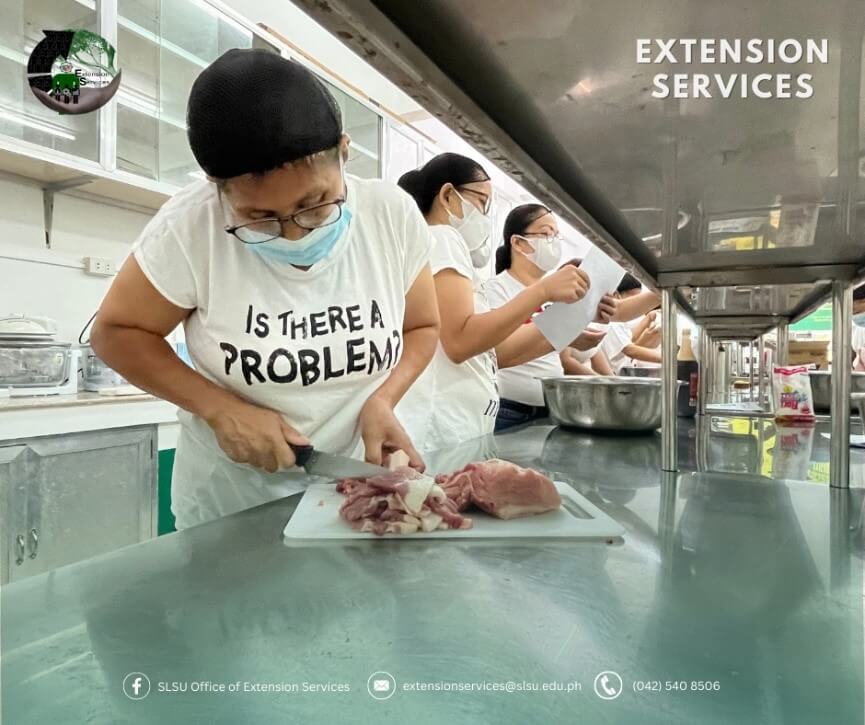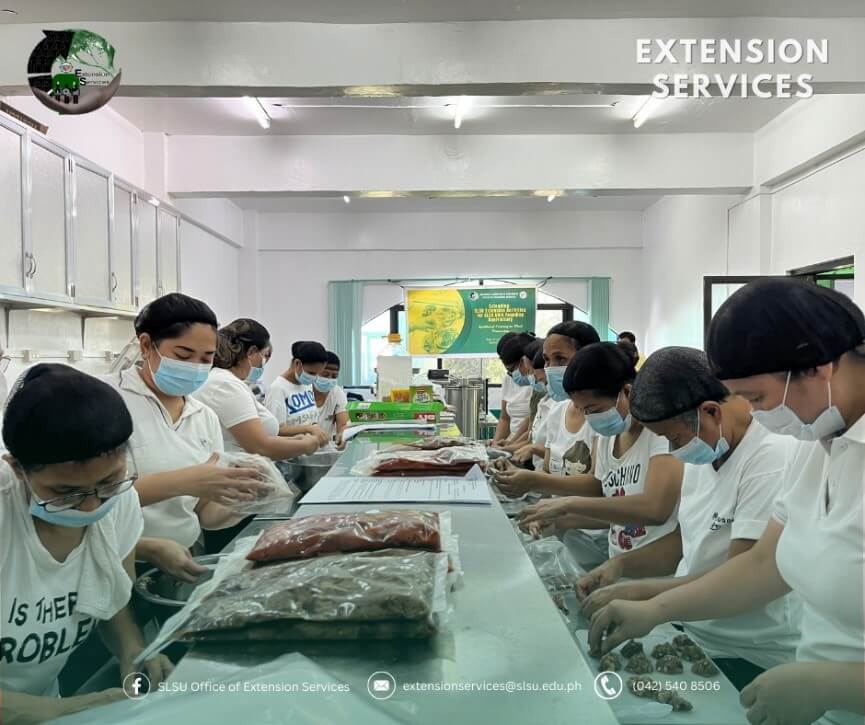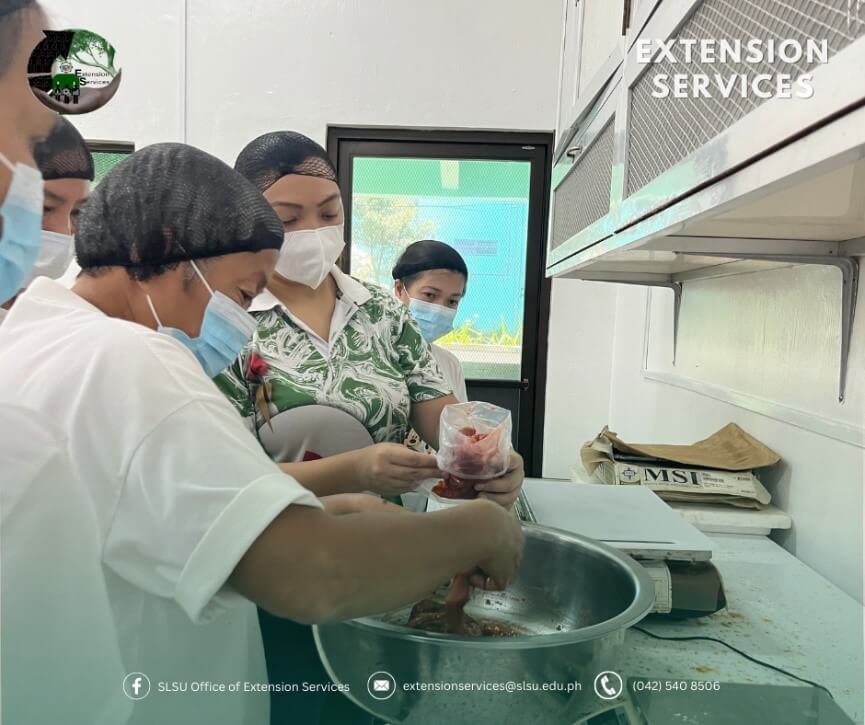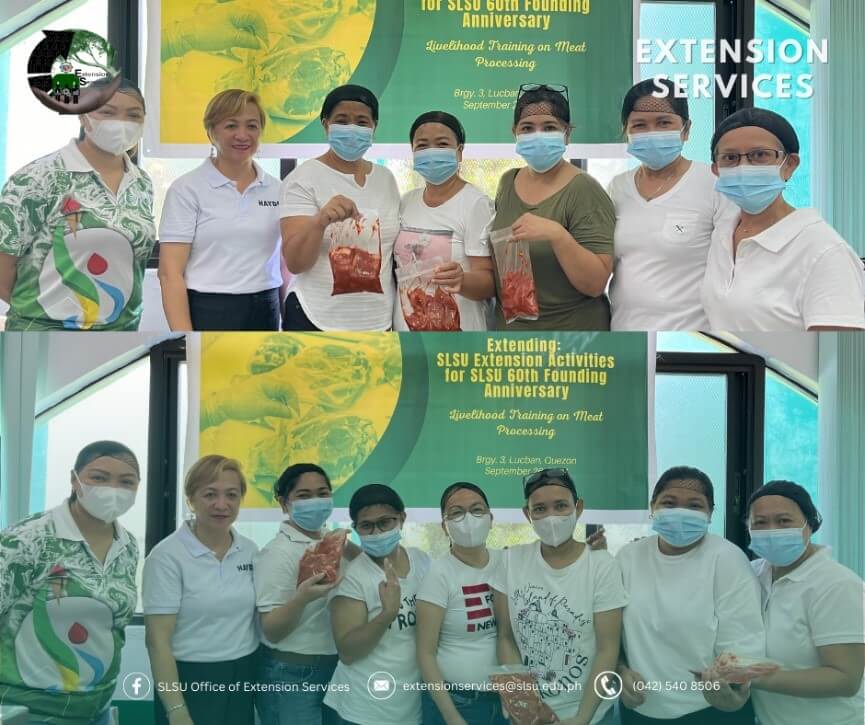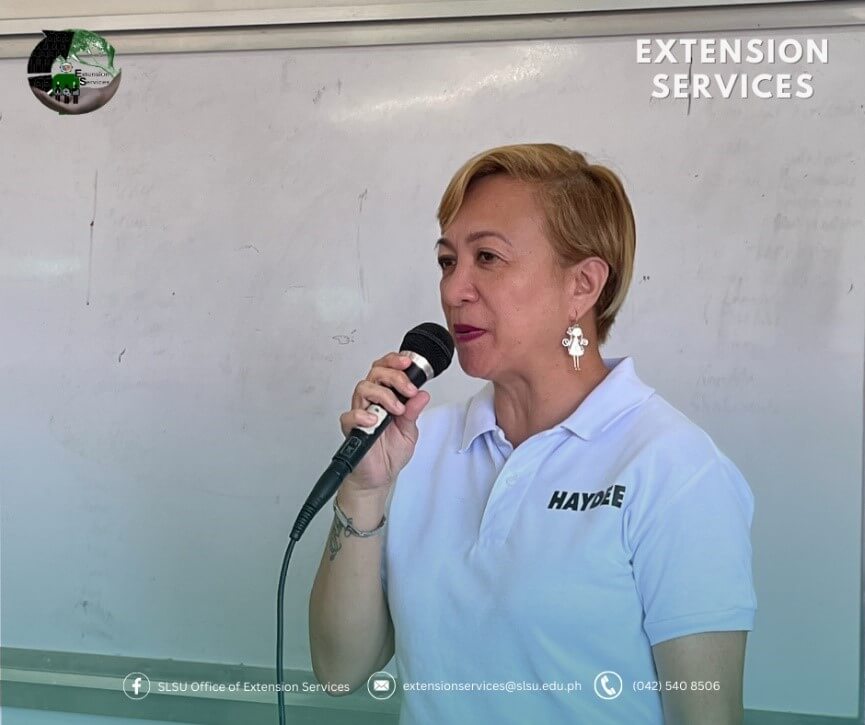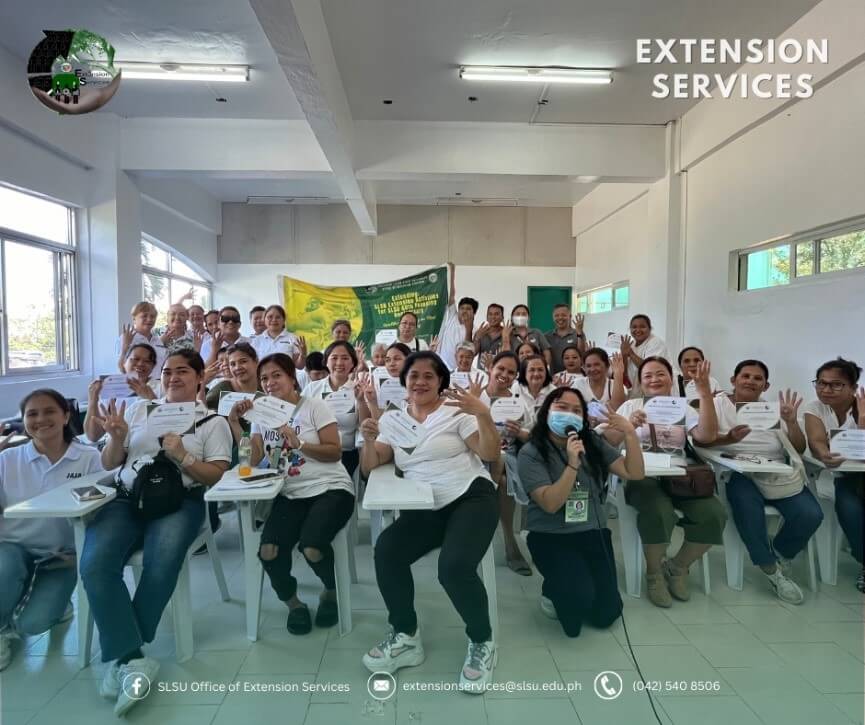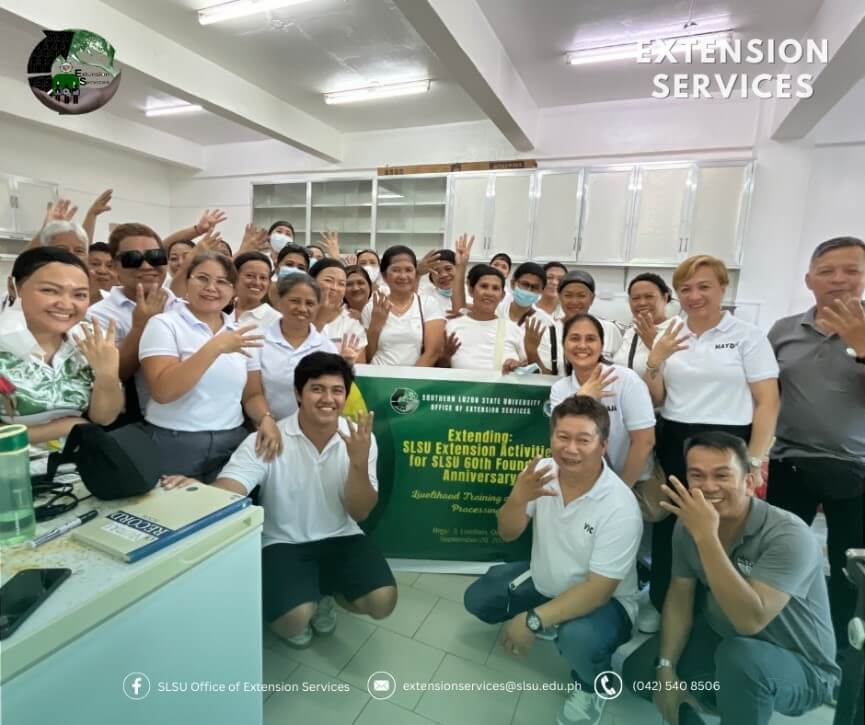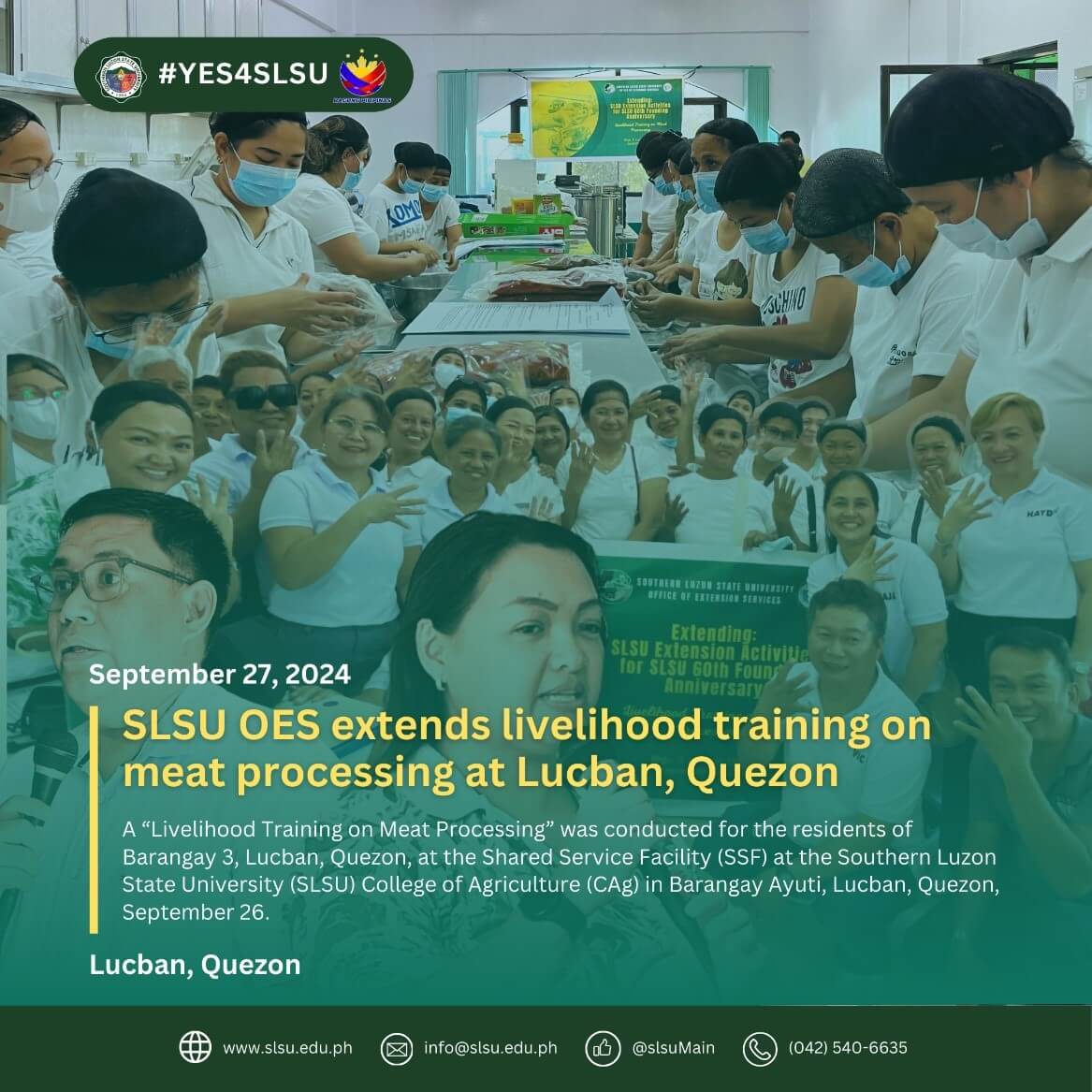
A “Livelihood Training on Meat Processing” was conducted for the residents of Barangay 3, Lucban, Quezon, at the Shared Service Facility (SSF) at the Southern Luzon State University (SLSU) College of Agriculture (CAg) in Barangay Ayuti, Lucban, Quezon, September 26.
The event began with a welcoming remark from Dr. Felino J. Gutierrez, Jr., the officer-in-charge of the Office of Extension Services, who warmly welcomed the participants and expressed his hope that the training would provide them with an additional source of income and livelihood for their families. He emphasized the university’s goal to support community development, particularly in the town of Lucban.
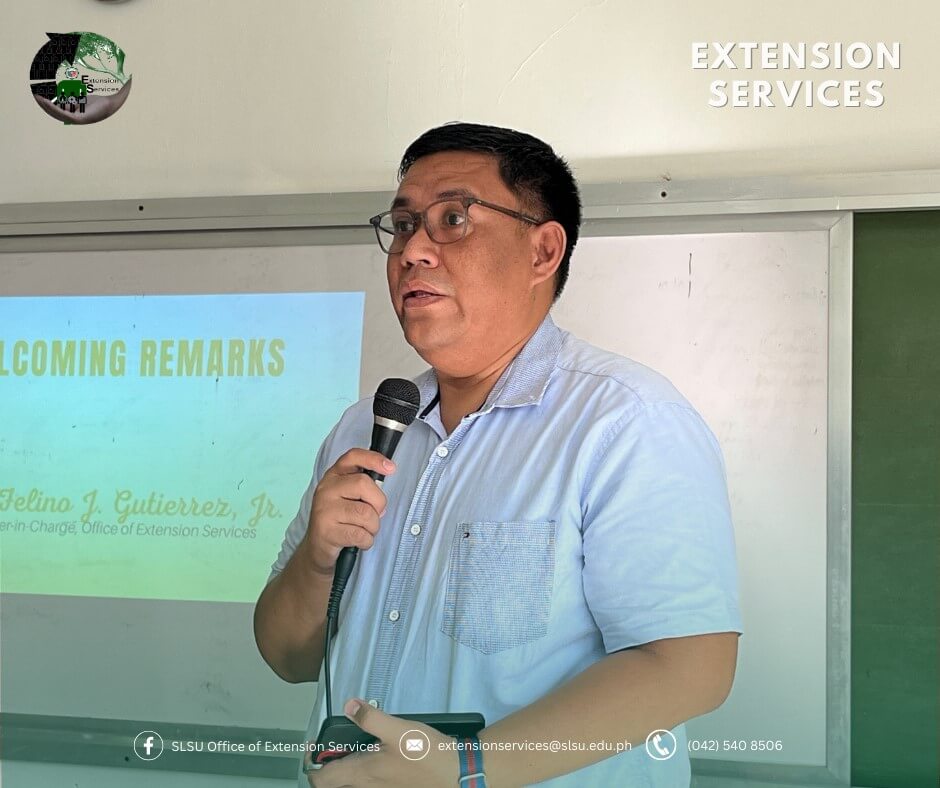
Dr. Claire Ann M. Yao from the BS Hospitality Management program of the College of Administration, Business, Hospitality, and Accountancy (CABHA) shared her expertise in meat processing through a lecture on Food Safety and Hygiene. She also delivered an in-depth discussion on meat processing techniques, focusing on products such as tocino, tapa, and longganisa.
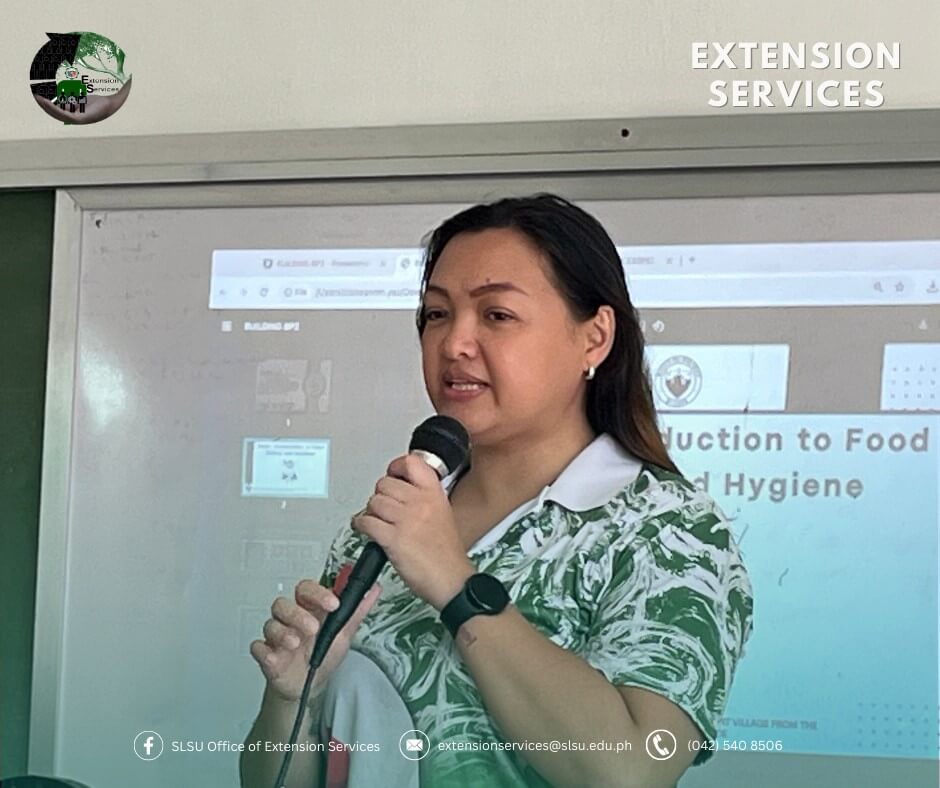
Following the lecture, participants proceeded to the Shared Service Facility (SSF) for a hands-on demonstration. Dr. Yao began by demonstrating the proper method of handwashing and cleaning workstations, citing its importance in food processing. After which, she began demonstrating the procedure for meat processing, from preparing the ingredients to packaging the products. The participants also had the chance to apply their newly acquired knowledge through the hands-on training.
After the hands-on activity, the participants returned to the lecture room for the closing ceremony. Hon. Hedeliza C. Villalon, Punong Barangay of Barangay 3, Lucban, Quezon, expressed her heartfelt gratitude to SLSU for providing livelihood training. She also shared her hopes for future collaborations.
Through this training, participants successfully learned how to make processed meat products, such as tocino, tapa, and longganisa, which they can use for personal consumption or as products for their livelihood. This training highlights the university’s commitment to supporting the community in improving their economic well-being.
By: Jaquelyn D. Merjudio

